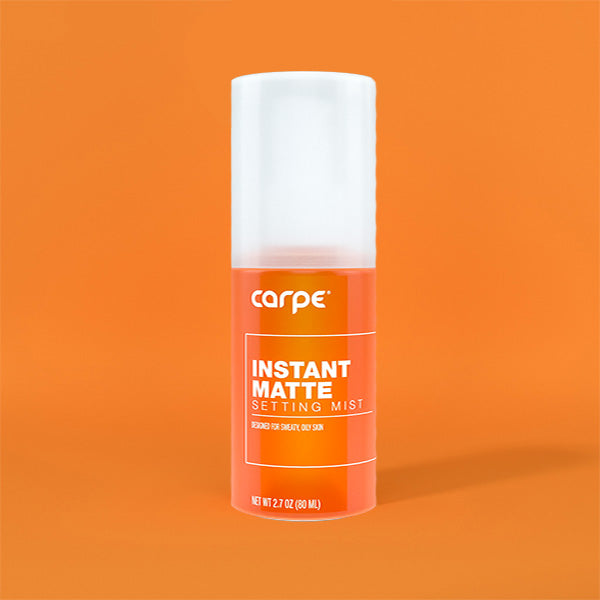Sunscreen is an invaluable tool for people who are exposed to direct sunlight for any significant length of time. This is because ultraviolet radiation (UV) exposure, which comes from being in the sun, can lead to a myriad of health issues. These issues can range from fairly mild, like a sunburn, to life threatening in severity, like the development of skin cancer.[1] However, there have been some questions about whether sunscreen itself is safe and how its use affects the body. One of the most commonly asked questions refers to whether or not sunscreen prevents a person from sweating appropriately and if it interferes with the body’s natural cooling system. This is an especially pertinent question as many sunscreens claim to be “sweat resistant”, meaning that sweating doesn’t interfere with a sunscreen’s ability to stay on the skin.
Does Sunscreen Prevent Sweat Production?
Probably not. There has been some conflicting research regarding whether or not sunscreen blocks the production of sweat, but most studies have concluded that there is not an association between sunscreen use and the inability to produce a normal amount of sweat.[2] For example, one study published in the International Journal of Cosmetic Science in 2017 used 24 female subjects to test whether or not sunscreen impeded natural sweat production. Each participant had sunscreen applied to half of their face and one forearm and were then asked to participate in rigorous exercise that produced a visible sweat. At the end of the experiment there were no detectable differences between the skin temperatures or sweat rates between the parts of the body that had sunscreen applied and those that were left bare. This led the researchers to conclude that sunscreen did not hinder sweat production.[3] However, there has been some conflicting research. Another study published in the Journal of Athletic Training looked at two specific sunscreens with the same SPF but different active ingredients, and an antiperspirant, to see how each impacted sweat production. It found that one of the sunscreens studied had no effect on sweat production while the other sunscreen hindered sweat production as much as the antiperspirant they tested. The study stated that this may have occurred due to a secondary ingredient that could have clogged sweat glands in a way that is similar to what antiperspirant does, but that more research was needed to fully understand the findings.[4]
Even though there is some evidence to show that sunscreen may impede sweat production, the bulk of research has found that it does not.[2] Other studies, like one published by Connolly and Wilcox in 2000 and another commissioned by the US military did not find a connection between the use of sunscreen and an impaired ability to sweat.[2][5] So, for now, sunscreen and its impact on sweating is most likely not a problem that the average person should worry about.
A Word About Hyperhidrosis and Sunscreen
Even though using sunscreen is not likely to help you with overactive sweat glands, it is especially important to use sunscreen properly if you have hyperhidrosis. Any time someone gets wet or sweats profusely it can wash off sunscreen, exposing skin to the harmful effects of the sun. It is recommended that sunscreen be reapplied every 30 minutes after heavy sweating for sunscreen labelled “sweat resistant”, every 40 minutes for sunscreens labelled “water resistant”, and every 80 minutes for sunscreens labelled “waterproof” in order to maintain its effectiveness.[1] For people who sweat excessively, it is advisable to get waterproof sunscreen, or at least one that is water resistant, to make applying sunscreen more convenient.
Sources
- Diaz, J. H., & Nesbit, L. T. (2012). Sun Exposure Behavior and Protection: Recommendations for Travelers. Journal of Travel Medicine, 20(2), 108-118. Retrieved March 19, 2019, from https://doi.org/10.1111/j.1708-8305.2012.00667.x. Retrieved April 16, 2019 from https://academic.oup.com/jtm/article/20/2/108/1881585
- Davis, John. “Does Sunscreen Affect Your Performance When Running in the Heat?” Runner's Connect, runnersconnect.net/sunscreen-running/.
- U‐Yang, H, et al. “Sunscreen Formulations Do Not Interfere with Sweat Cooling during Exercise.” International Journal of Cosmetic Science, Nov. 2017. Retrieved April 16, 2019 from https://onlinelibrary.wiley.com/doi/pdf/10.1111/ics.12440
- Aburto-Corona, J., & Aragón-Vargas, L. (2016). Sunscreen Use and Sweat Production in Men and Women. J Athl Train, 51(9), 696-700. doi:10.4085/1062-6050-51.11.01. Retrieved April 16, 2019 from https://www.ncbi.nlm.nih.gov/pmc/articles/PMC5139786/
- Connolly, DA, and AR Wilcox. “The Effects of an Application of Suncream on Selected Physiological Variables during Exercise in the Heat.” J Sports Med Phys Fitness, vol. 40, no. 1, Mar. 2000, pp. 35–40., Retrieved April 16, 2019 from www.ncbi.nlm.nih.gov/pubmed/10822907.






16790753702383.jpg?v=1679075372)

16790746985853.jpg?v=1679074700)


16790757289763.jpg?v=1679075731)










